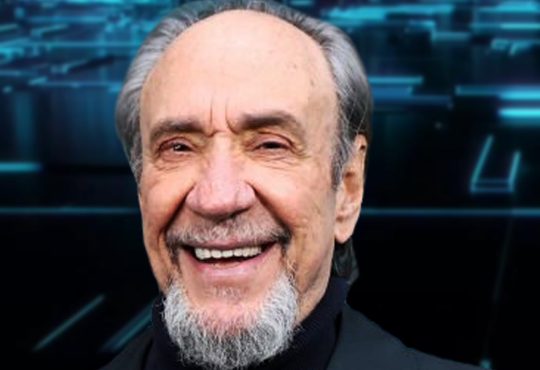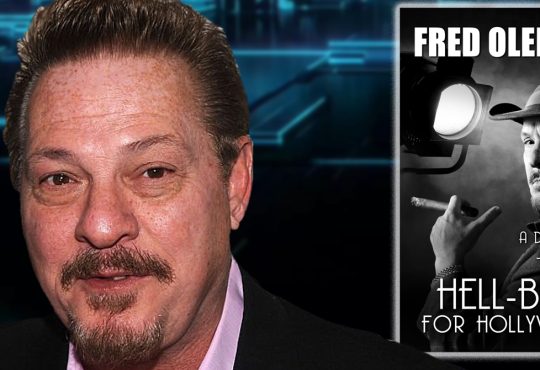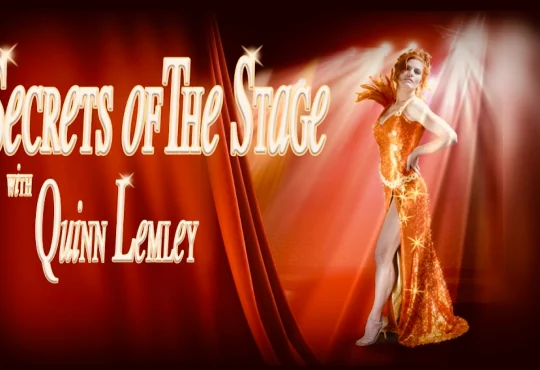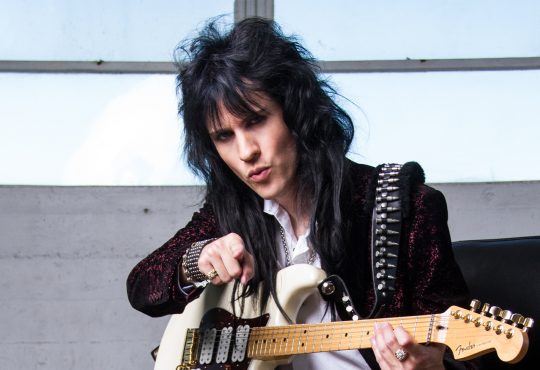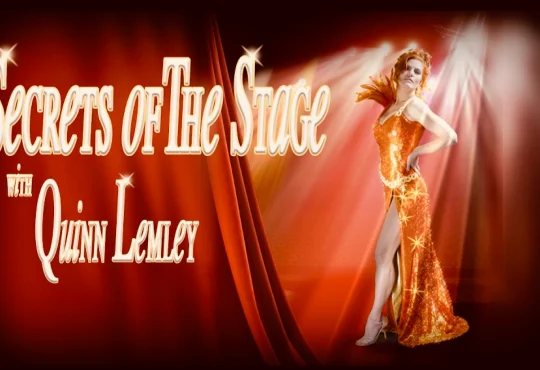‘You’ve Got to Keep Going’: Pamela Adlon on the End of ‘Better Things’ and What’s Next
For most of her acting career, Pamela Adlon was best known for her voice, even though she rarely felt like she had one of her own.
Adlon, née Segall, entered the family business as a teenager — her father Don Segall was a sitcom writer — mostly shuffling around in small TV roles in the Eighties before finding a niche in the Nineties as a voice actor, most famously as middle schooler Bobby Hill on King of the Hill. She worked a lot but rarely felt secure in her career prospects or her level of artistry. She had started out playing tomboys, and sometimes actual boys like Bobby, but she was still a woman in an industry with little use for women above a certain age. So she assumed on-camera jobs would dry up for her after she turned 40.
Instead, middle age has proved to be the most successful phase of Adlon’s career. She spent seven seasons playing the brash Marcy Runkle on the Showtime comedy Californication, a study in fortysomething malaise, and had a recurring role on Louis C.K.’s FX series Louie. She and C.K. had become friends while co-starring on his short-lived HBO comedy Lucky Louie, and he trusted her enough to enlist her help writing some episodes. Eventually, their partnership led them to create another FX show, Better Things, inspired by Adlon’s real life as a vaguely famous actor raising three daughters on her own. (Adlon’s alter ego is named Sam Fox, but many details of Sam’s life and career are only thinly fictionalized, including her beloved work on an animated comedy called Ching of the Mill.)
Adlon began writing and directing more and more episodes, especially after the show cut ties with C.K. following the revelation that he had been exposing himself to female comics without their consent. And putting so much of her life into her work finally made Adlon feel like an artist. Better Things is a beautiful, dreamlike show detailing Sam’s life with kids Max (Mikey Madison), Frankie (Hannah Alligood), and Duke (Olivia Edward), plus her difficult English mother Phil (Celia Imrie). Some episodes are dark (Frankie runs away from home to escape tensions with Sam), some are light (Sam very definitively rejects the advances of a friend’s ex-husband), some are magical (Duke can sometimes see ghosts), and some are many things at once (Sam and Max work their way through an argument by repeatedly calling each other the C-word). And despite the relative plotlessness, the vignettes are so immersive that the collective experience of watching them makes you feel as if you’ve become a part of Sam’s life.
That level of artistry continues through Better Things’ upcoming fifth and final season (debuting Feb. 28 on FX), which brings a perfect end (for now, at least) to the story of Sam and her friends and family. And the acclaim the series has received has given Adlon the confidence to start telling non-autobiographical stories, too. Among her projects in development are a miniseries about Addyi, a.k.a. the “female Viagra” pill, an animated project with Joan Jett, and an adaptation of Ariel Levy’s memoir, An Abbreviated Life, which Adlon is hoping to direct.
“I could never have imagined it would turn out this way and that I would have like five shingles [for different jobs] that I could put outside,” she says. “That, to me, is the most valuable thing in the world.”
Adlon spoke with Rolling Stone by Zoom about finding creative success so deep into her career, the blurred lines between her life and Sam’s, keeping Better Things going when the C.K. scandal could have sunk it, and more.

Adlon as Sam Fox and Mikey Madison as Max in Season Five of ‘Better Things.’
Suzanne Tenner/FX
When you were on Finding Your Roots in January, you joked that at the age you were when Better Things started, “I should be in the dustbin at the Jewish Council thrift store.” Before this show began, what were your expectations for your career?
I never really had high expectations for myself. I just always wanted to work — punch a time card. I don’t look back and say, “Oh, I’m successful” or whatever. Even with King of the Hill or Californication, it always was like, “I was working during that period.” Though when it’s something that’s great that you know is going to last, like King of the Hill, you’re like, “Oh that’s great. It’s a bonus. People feel passionately about it.” I guess it was seven years ago I started this show, and we’ve done five seasons. I can’t believe that I have a body of work that I hope is not my final opus.
Why couldn’t you imagine this level of success?
I had all the pieces. I shot and cut my first film on 16 millimeter when I was 19 years old, and I was a published songwriter, and I was writing lyrics. I directed a video I submitted for an MTV contest for Madonna’s “True Blue.” There were all these little things, but I was so myopic, thinking, “I really am just an actor waiting for the phone to ring.” And I feel like that’s so sad. I should have gone to Africa instead of waiting for fucking pilot season. “Oh, I can’t go because I’ve got an audition to be in an episode of Jake and the Fatman!” And also, being a woman, growing up in the time that I grew up and being a girl, not having a lot of confidence, you stay small, you don’t think big.
You do not come across as a person lacking confidence. You come across as a person who knows exactly what she wants and how she’s going to do it and has very little patience for the people who get in the way of that.
One thing that you said is exactly true, and that’s the thing that I learned doing this show for these past seven years: Learn how to make a decision. It makes everybody else feel confident and secure. Because I went through all of those stages from Season One thinking that I needed a director and a showrunner, and then it was just, I was there all the time and it was me. And I learned this from my first [assistant director], Maria Mantia in Season One. She looked at somebody who was there doing another job and said, “They can’t make a decision to save their fucking life, and it’s killing us. You know what you want.” So that was a muscle that I grew, and it’s not about patting-yourself-on-the-back confidence, it’s about knowing what you’re doing within this world, and how to get your crew going, and how to get your writers going, and how to act, all of the things that go into the job. But I mean, I don’t really have that for myself personally. That’s just a lot of, like, “Hey man, I’m Pam Segall from the Eighties. Remember her?”
Whether it’s a pose or truly who you are, there’s usually a level of frankness from you, a sense of “I’m going to be honest, and I’m going to say what’s on my mind, and I don’t care what sort of language I have to use to say it.” Does that feel true to you? And if so, where does that come from?
That is just an inability to control certain things. I have always been somebody who got myself into trouble when I was a kid, speaking my mind and sticking up for people. And I would get into scraps, physical. I mean I’m from the Seventies, what can I say? I’d be like, “You want to go? You want to make fun of my friend because he’s deaf?” You know what I mean? “He’s wearing a funny sweater to you because it’s got a belt? OK. How about you and I go?” I mean, that was me, until I think my first daughter was six weeks old, and then I was like, “Oh, I can’t do road rage or things like that anymore. I have children.” I wish I could control myself more, but I think that the way I do it now, in terms of my life and my work, is I can advocate for everything that we need to do. I’ve certainly gained more and more confidence every year, because when I take those risks and I push past people who are above me and I ask, it works out.

Adlon with Evan Handler as Marcy and Charlie Runkle in ‘Californication.’
Randy Tepper /Showtime/Everett Collection
That Finding Your Roots appearance works its way into the Better Things final season premiere, where Sam and her brother Marion, who’s played by Kevin Pollak, learn about their family tree. It’s almost verbatim what you discussed with Henry Louis Gates. In general, is that the level of closeness from your life to the show, or do things tend to get more fictionalized than that?
That verbatim thing does not really happen that much. I would say that the show’s probably like 50 percent [autobiographical], and a lot of it is stories from my childhood that I’m able to put on the other kids. We’re definitely inspired by things we’re dealing with. Like, we didn’t want to work Covid into this season, but we wanted to lace it into the stories of the show, in terms of what we were all trying to do when we were stuck at home. So, Sam’s trying to get control of her finances and going on walks with the kids, and Phil is de-hoarding.
Were there stories you knew you wanted to tell in the final season?
There’s certain things that I knew I wanted to do. I wanted there to be a lot of secrets kept from Sam, and that really everybody is boo’d up at the end except Sam. I remember the Season Three press tour, people were so obsessed with [the love interests,] saying, “Is Lenny Kravitz coming back? Is Henry Thomas coming back?” And I was like, “Everybody is obsessed with a woman my age not being single. How uncomfortable it makes people.” And I think I decided then that I really wasn’t interested in letting Sam end up with somebody.
Brushstroke by brushstroke, the show paints this lovely picture of the life that Sam has chosen to build for herself and her family. There are scenes in the final season where the kids and other loved ones tell her how much they respect her and the way that she does things. Is that how you felt about your own life when you started making this show?
Oh, no. I’m a mess. We’re a fucking hot mess. [Producer and writer] Phil Rosenthal said two things that I remember. He goes, “Write the show that you want to write, because in the end everybody gets canceled.” And the other thing he said was, “Write the life that you want to see for yourself. Put the things that you want for yourself in your show.” And so I just thought, that is a sentiment — like, to have a kid look at their parent [and] really see them… I never saw anything modeled like that for me when I was screaming, locking myself in my closet, needing a minute.
[Writer’s note: In addition to creating Everybody Loves Raymond and hosting Somebody Feed Phil on Netflix, Rosenthal was a writer, and one of Adlon’s co-stars, on a short-lived Nineties sitcom called Down the Shore. She was fired from the cast midway through the run, allegedly for not being attractive enough — an incident revisited on Better Things when Rosenthal told a version of the story in Season One.]
There’s often very little happening on the show, yet it feels so emotionally tangible all the time. How do you do that?
I love that, and I feel like I have always been very engaged in my life, but I step out, like… You know that scene in Annie Hall when she gets out of bed and smokes a joint, and he’s like, “I need all of you here”? It’s just a feeling that I would get. I remember when my kids were a lot younger being at a Halloween party, and I’m in a boys’ SWAT team costume with my kids and not able to really talk to the parents because I feel isolated, and I’m waiting for one of my kids to go, “Let’s go home.” Hoping. Not that I don’t love people, but not when I’m forced into those kinds of situations. So it’s really observational and it’s really like that whole fly-on-the-wall thing. But in terms of how we get that feeling, you add the special sauce of music and the editing. And that’s where it all comes together.
Has that quality of being able to step outside yourself helped you in your day-to-day life at all?
I was able to change the way I received my mother. Instead of going, “Oh my God, I’m going to fucking kill you,” I changed the lens and just went, “Oh, she’s really funny.” I mean, she would do terrible things. We went to see my oldest daughter, Gideon, in a movie, The Mustang, and the head of Focus Features — this very serene, very collected gentleman — is speaking in the microphone, and my mother’s next to me, and she goes [yelling in British accent], “Louder!”
Better Things doesn’t really hold the audience’s hand or worry too much about context. Characters appear without any real explanation of who they are in relation to Sam, and we’re often dropped into the middle of a scene without knowing what’s happening and why.
The show always was built on the way my brain was working when the kids were so little and I was doing it by myself. My life was so fragmented. When I started doing this, and I was writing fucking shit longhand, I’d be like [begins laying out script pages into different piles to demonstrate how scenes move around in an episode], “OK, this is the plastic surgery scene. This is due to the playground. Oh no, we could put this and this here.” And that’s the way things went together. I said at the beginning that the logline for this show is “Life is what happens to you when you’re too busy to make any other plans.” Because I couldn’t plan anything. But that’s the way it is, you just drop in. That’s all it is, just these vignettes. And I know it’s asking a lot of people. For years, the network would call me and say, “People are asking why they touch the beanie boy statue [at the top of the stairs in the Fox home].” And I’m like, “Because we’re superstitious.” And that was literally just one day on set I started touching the statue, and then it became a part of the show.

With Hannah Alligood as Frankie on ‘Better Things.’
Suzanne Tenner/FX
There are also stories that you followed for a while, then pushed into the background before revisiting them later. The last big moment of Season One is Max telling Sam, “Frankie’s a boy.” Frankie’s gender identity is touched on occasionally after that, but it’s really not a significant subject again until this final season, where Sam is adjusting to the right pronouns for Frankie and their friends.
Do you know how fucking hard it was for me to hold that space for Frankie, the character? Because if you watch the show and you watch the scene, Frankie doesn’t want to have anything to do with pronouns. From Season One, it was just Max going, “Mom, Frankie’s a boy.” And Sam, this very hipped, together, edgy mom is like, “Shit.” And then she thinks that she knows. And Frankie’s like, “I know everybody thinks I identify as a boy, but girls are disgusting.” And Sam’s like, “Oh, yeah, facts.” After I finished Season One, I was told from a very close friend of mine that I needed a trans advocate for my show. And I was like, “Why?” “Because Frankie.” “What about Frankie?” “She’s trans.” I go, “She is?” Do you know what I mean? So that’s why these things are so important to me because I knew that I was protecting these characters and stories for them to evolve.
There are long sequences on the show where we’re just watching Sam prepare food. What is it that you find interesting about cooking onscreen?
Well, I like seeing the process, especially if you can show it in an artful way. And I want people to see that you don’t have to be a super-robot mom like all those moms that I was intimidated by when I was a new mom at school, and I would fantasize [about] looking into their kids’ lunch boxes and sneaking into their house and seeing what they were making for breakfast. It’s easy to make fresh, home-cooked food and people shouldn’t be intimidated by it. It’s the kale I put in the chocolate milkshake of my show. Same for Season Three when Frankie won’t read A Raisin in the Sun for school, so I say, “OK, I’m going to read a chapter and then you read a chapter.” Celia looked at me and goes, “Mate, I wish I had done that with [my son].” It’s my little way of being able to share these tricks that I’ve learned that I wish somebody had told me or I wish I had done.
After the second season, the accusations against Louis went public. What did you think was going to happen to the show at that point?
I didn’t think that the show was going to move forward. I thought there’s no way it could possibly go: “Well, we have our names on it as co-creators. I don’t want to move forward doing this.” You see somebody who’s your friend and your business partner of forever just going up in this white-hot flame… just, the world felt really bad, and I did not see a way out, and I didn’t see a way that I was going to keep doing the show. I was like, “What am I going to do? I’m going to call it, like, Mo’ Betta Things or Schmetter Schmings?”
How did you get past that desire for the show not to continue?
I had to relearn everything. I didn’t know how to read writers, I didn’t know how I was going to interview them, make a room. Everything in my life exploded at that time. I had to get control of my finances. I got an attorney, it was crazy. The guy that I used to be married to came after me for a huge settlement that I never thought was going to happen. This all happened at one time. It reminds me of my friend, Liz, who was the first mom that I knew who has three boys. I remember she said that she was pregnant with her third and I was like, “Fuck, you’re going to have three kids?” And she goes, “Well, we’re still in diapers and bottles now, might as well.” So that’s the disaster level: “Might as well!” But it’s a good metaphor for parenthood, and not just single parenthood. There’s just never a let-up. You know that quote about how you’re only as happy as your unhappiest child? It’s the truest fucking thing in the world, and there’s never a good time for any of it. What I have tried to do and tried to help myself regulate, in regards to my own personal anxiety, is that if something extremely good is happening or something extremely bad is happening, they both will have the same physiological impact. And so, I just try to not celebrate and not grieve too hard. You’ve got to keep going.
One of my favorite scenes from the run of the show is when Sam is sad about Frankie running away and tries to lift her own spirits by enlisting Max and Duke and their friends in a singalong of the Phineas and Ferb theme. Where did that idea come from?
It’s because that song is the best. I’m obsessed with TV theme songs. I can’t believe we don’t have them anymore the way we used to. I’m obsessed with old TV commercial jingles as well. My kids knew it, and they would sing it really fast or really slow. And I thought, “Oh, I wanted to have a scene where the girls are in their underwear and almost like in Foxxes.” It was not gratuitous, but that they were in this state of being feminine and in their underwear, and that Sam comes in and she goes, [singing the opening lines to the theme song] “There’s a…” and they go right back to being kids again. That’s one of those little dreamlike life moments that you were talking about, that I think people really respond to, because it unlocks a key inside you. We say in the editing room that the show is a portal, because there’s so many things in the show that get triggered in the world. We hope it’s a portal for good.

Adlon, right, on ‘The Red Foxx Show’ in 1986.
Lorimar/Everett Collection
On the show, Sam is constantly being recognized by fans of different parts she’s played over her life. Does that happen to you as much, or is Sam more famous than you are?
Well, it’s always an intermittent and weird, random thing. But it doesn’t really happen unless I talk. I forget that I’m a thing, and then I’m at Cost Plus World Market and somebody goes, “Yo, I love Bobby Hill!” It’s crazy.
There was that period early in your career where you were only playing tomboys, and at least once, in the 1986 movie Willy/Milly, you grew a penis overnight. Did you ever wish you would get considered for more stereotypically feminine roles?
Never! I mean, there’s a reason: I was “boy-presenting.” Tatum O’Neal in Paper Moon was a huge influence to me. That cross-dressing thing was like, that was my oeuvre for so fucking long. Night Court, The Red Foxx Show, The Jeffersons, they would have to put “girl” in the title of my name so people would know, like, “Girl Joey.” And I would be like, “That’s so stupid. Why? Who the fuck cares?” I feel I have all of my power when I’m wearing pants, and if you put a dress on me, I lose all my power. I can’t begin to tell you how hard it is for me to be a girl. I mean, I can’t believe I did all of Marcy’s shit on Californication for all those years. That was fucking bananas.
You’ve spent all these years telling a story inspired by your life. Now you have several projects in development that have absolutely nothing to do with you or your family. Is that exciting for you, or is it scary?
I’m so excited by it. These are the paints that I like to use. Even in the ones where it’s not me directing it, but just me helping to shape it, I like to think that I know what’s going to work and I know what’s going to sound the best. But I also have this fantasy. I’m like, “Jesus, it would be so fun to do [Better Things] for years.” I could see these stories. They never end. But then I’m sitting there going, “OK, well maybe we could pick it up in a couple of years.” But the house is gone. Everybody took all the furniture. It was like a fire sale.


